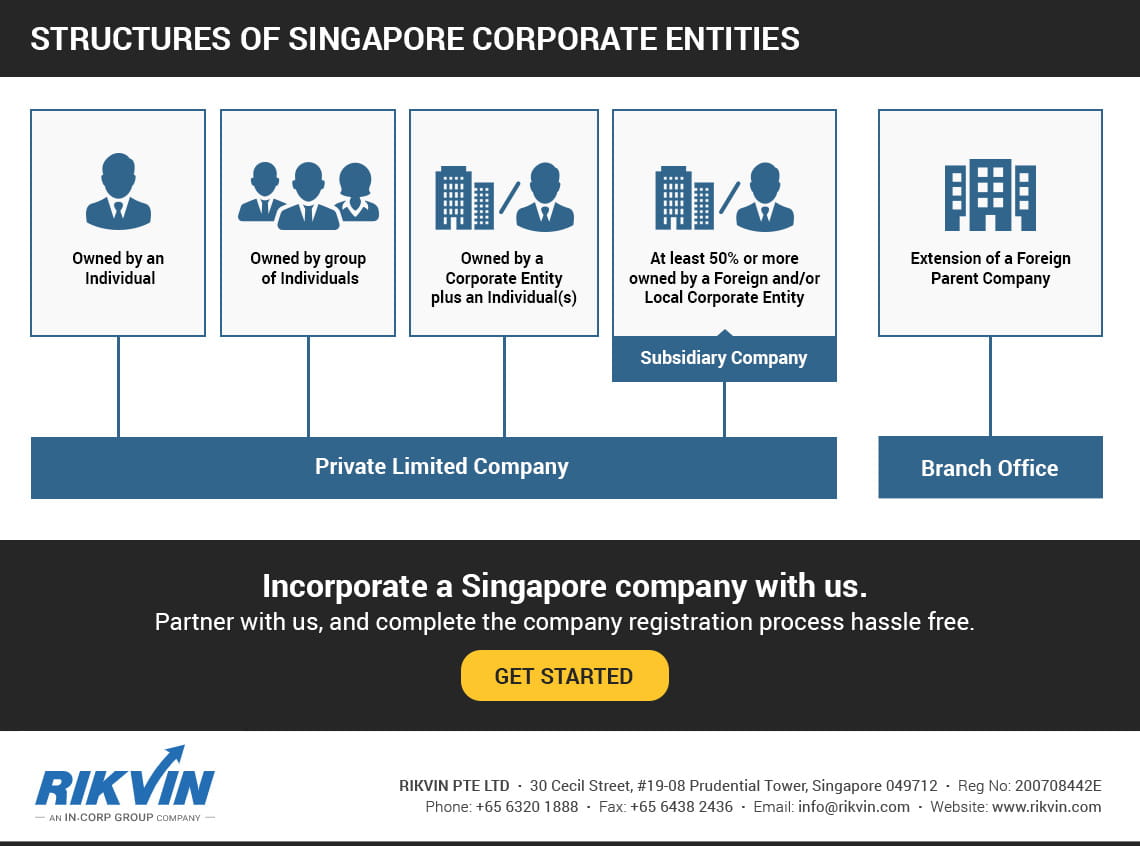If you want to start a company in Singapore, you’ll need to decide on the type of company structure you want to use. The following is a list of 6 common company structures available in Singapore, along with a brief description of each type.
-
Sole-Proprietorship (one owner)
A business owned and operated by a single person (the sole proprietor), with no legal distinction between the business owner and the business entity. This person is entitled to all of the company’s profits and is personally liable for all of its debts and obligations.
As the sole proprietor of a business, you face unlimited liability, implying that in the event your business is unable to cover its obligations, creditors to whom your business owes money can pursue your personal assets. Many entrepreneurs are often unaware of this substantial financial risk. In the case of a lawsuit or the inability to meet financial obligations, the owner becomes personally accountable for the company’s liabilities.
-
Partnership (two or more owners)
A partnership is a business that is owned by two or more partners.
Partners are personally and jointly liable for the general partnership’s debts and liabilities, and they can be sued individually or jointly.
-
Private Limited Company (Pte Ltd)
A private limited company is where the corporation is treated as a separate legal entity from its members and as a “person” in the eyes of the law.
A corporation might be limited by shares, limited by guarantee, or unrestricted in its operations. Shareholders in firms limited by shares might be individuals or corporations, and they don’t have to be local residents of Singapore.
-
Variable Capital Company (VCC)
A new company structure that was introduced in Jan 2020. The Variable Capital Company (VCC) is a new corporate form for investment funds.
A VCC has a variable capital structure that allows for the issuing and redemption of its shares to be done in a variety of ways. It can also pay dividends out of capital, allowing fund managers to satisfy their dividend payment responsibilities with greater flexibility.
However, if you’re a foreign company looking to expand into Singapore, the company structures such as a branch office might be better suited for you instead.
-
Branch Office
To file an online application for the establishment of a branch office, a foreign corporation must hire the services of a Registered Filing Agent.
For a Foreign Company to Register a Branch in Singapore, it must have at least one Authorised Representative who is habitually resident in Singapore. The authorised representative’s normal place of abode is in Singapore if he or she is “ordinarily residing in Singapore.” A Singapore Citizen, Singapore Permanent Resident, or EntrePass holder may be considered a person who is habitually resident in Singapore.


Rikvin’s content team includes in-house and freelance writers across the globe who contribute informative and trending articles to guide aspiring entrepreneurs in taking their business to the next level in Asia.

